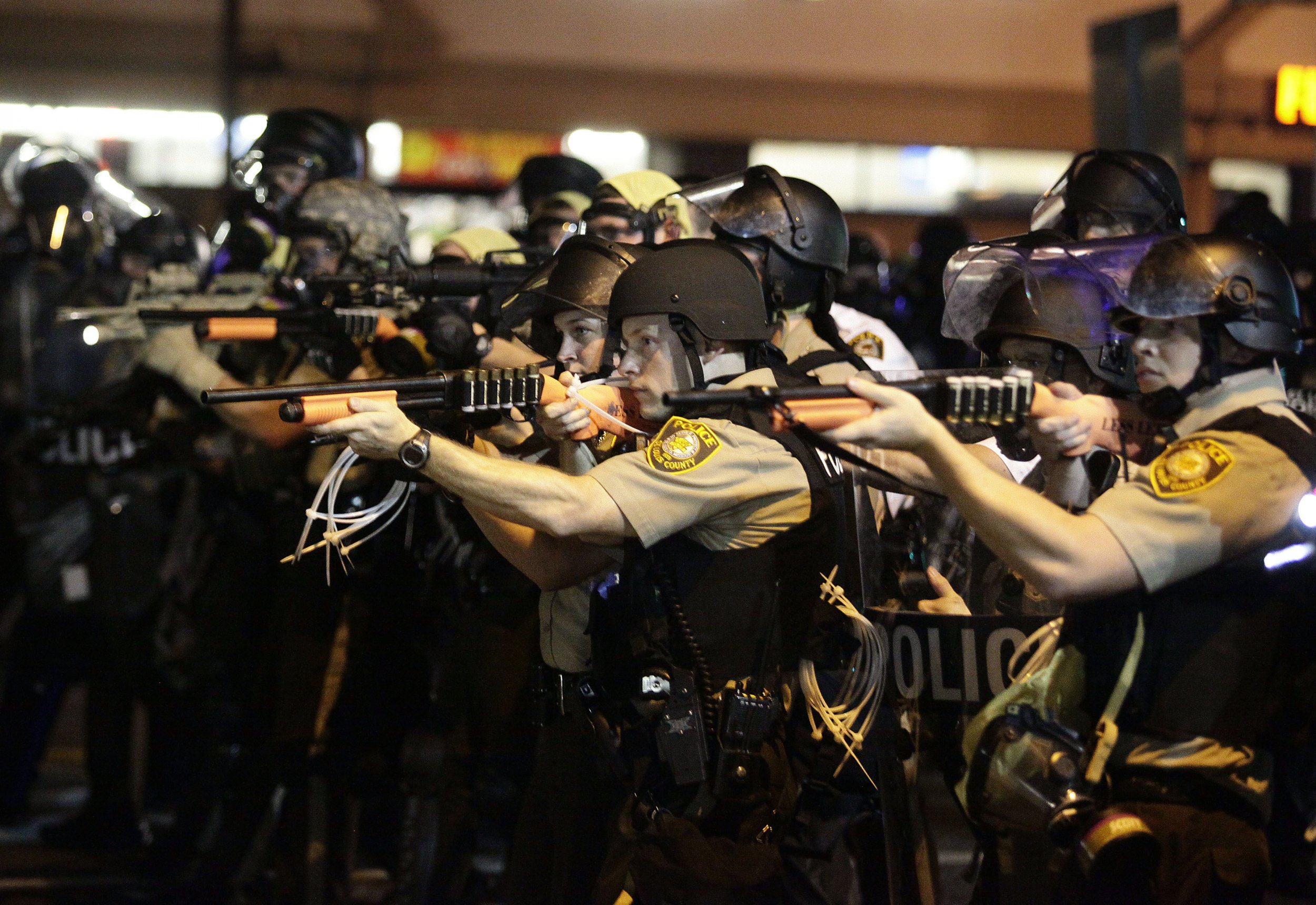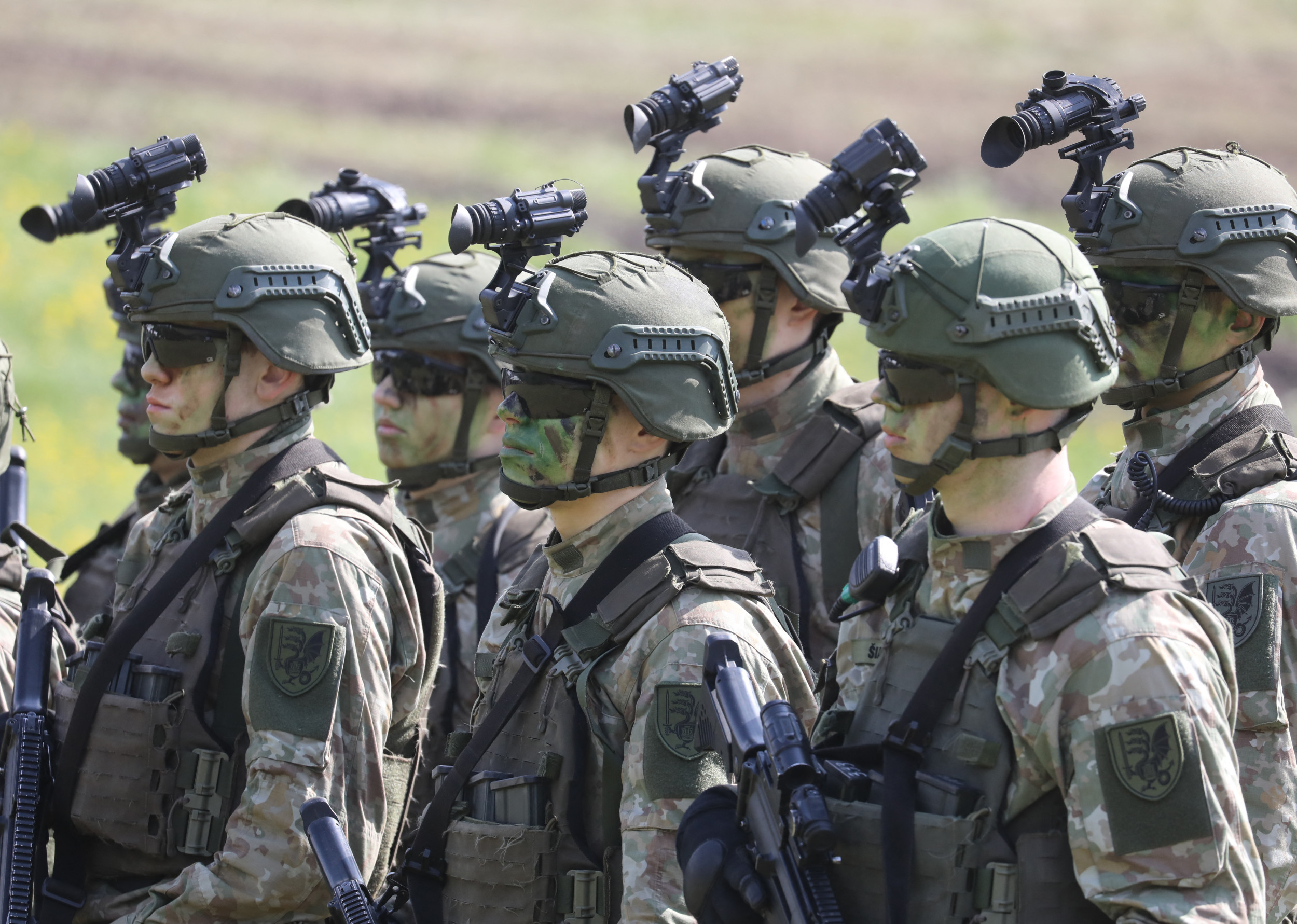
Like most combat veterans, I am often asked, "What was it like?" Now that I'm a writer who covers the wars in Iraq and Afghanistan, I've made it a point to have a professional answer to this question, and when I heard it again at a recent event, I took some time to respond.
It's an important question, the start of a dialogue. I talked about the query itself, the civilian-military divide, and the chasm of life experience between 25-year-old combat veterans and their civilian peers. You learn things in a war—about yourself, about mortality, about the basic unfairness of existence—and when you get home, it can feel like no one else has a clue.
Upon hearing this answer, my nearly uniformly white, upper-middle class, middle-age bookish audience nodded solemnly in agreement. All except for one man, the sole African-American in the group, who immediately asked a follow-up question.
He said his childhood in inner-city Philly was also plagued by fear and loss. And then, with earnest generosity, he asked whether I thought his family's trauma, his neighborhood's trauma, was similar to my own?
And in one act of empathy, this man laid bare the casual generalizations we make, that I made, in presuming a monopoly on exclusion.
The question of "what it's like" is an old one, and fair. For Americans over the past century, war has been especially mixed with travelogue. How is it "over there?" In the desert, the Hindu Kush, the jungle, the Korean hills, South Pacific, Germany, France, the Philippines? The soldier has been somewhere the average American will never go.
But in recent decades, in the era of an all-volunteer military, one often hears a second part to the question. "I can't imagine," they say, and shake their heads, because now they are asking about combat as well. That experience is so far outside their day-to-day lives, they feel like they have no frame of reference.
Writing in The New York Times, Phil Klay said all of us need to do better. "Believing war is beyond words is an abrogation of responsibility," he wrote. "It lets civilians off the hook from trying to understand, and veterans off the hook from needing to explain."
My explanation is this: For the individual participant, war is defined by violence and grief.
Soldier or civilian, antagonist or victim, war exists as an accumulation of violence. Following and interspersed throughout is grief, for family, friends, a tribe, a home, the lost innocence of the self. Everything else we think we know about war—survivor's guilt, post-traumatic stress, moral injury, indoctrination, the famous camaraderie among veterans, pacifism, patriotism, political protest and nationalistic boosterism—ultimately flows from these first two characteristics. Violence and grief.
Over time, I've come to understand there is another subconscious aspect of the "what is it like" question. Often, what the questioner means is, "I don't know what I'd do." It is not only combat they cannot imagine, it is them specifically in that world of violence.
Would they flee or fight, be the coward or the hero? Would they survive the war, and how? Cowardice is an uncomfortable concept not often considered in America in 2016.
The 16th century philosopher Thomas Hobbes described life as "nasty, brutish and short." Today, many of us enjoy a post-Hobbes existence: pleasant, artisanal and long. We have made great strides in banishing the threat of physical harm from our everyday lives, and can delay familial loss for decades. I sometimes feel like we veterans have relearned something fundamentally human that used to be common knowledge: that what makes us different is our host of friends who died painful deaths.
But existence is not post-Hobbes for everyone, as the question I got at my book event reminds. African-American men are murdered at eight times the national average. They are 21 times more likely to be killed by police than white men, and 6.5 times more likely to be in jail.
Our larger society and popular culture—that views prison through the lens of Orange Is the New Black and combat through American Sniper—is safely walled-off from these experiences. War is kept overseas. Violent crime is cordoned off in specific poor neighborhoods. Our sick die in hospitals out of sight. And the Trumps of the world want to build more walls.
There was a moment, before this presidential campaign, when two summers of police shootings and riots and demonstrations and wrongful deaths got many Americans to ask, perhaps for the first time what's it like to live in Ferguson, Missouri, or Baltimore, or be a black and pulled over by the police in Texas or Cincinnati, to be slowly suffocated on the streets of Staten Island.
Nothing demonstrates this increased empathy more than protestors of all races holding signs that say "We Can't Breathe."
The specific backgrounds of a youth from Ferguson and an Afghan War veteran may be vastly different, but they are united in this: the challenge of explaining their experience to an American culture that has worked hard to be insulated from it. That's not necessarily America's fault; progress could be defined as ever greater distance from violence and grief.
If writing a book about coming home from war has taught me anything, it is that trauma is trauma. Violence and grief are violence and grief. There's no contest. No one wins anything here. From Ernest Hemingway to Tim O'Brien, James Baldwin to Ralph Ellison, the stories harmonize.
In response to the gentleman's question at my book reading, I nearly said, "I can't imagine." And by that I mean: It's uncomfortable. It's unfamiliar. I was an adult and a volunteer when I went to war. I didn't experience cycles of violence and grief my whole life, in my own poor neighborhood, in my own family, from a young age.
But the point is, we all should imagine. Or do our best to learn and try. Let's not forget that during the next presidential debate.
Brian Castner is the author of The Long Walk and All the Ways We Kill and Die.
Uncommon Knowledge
Newsweek is committed to challenging conventional wisdom and finding connections in the search for common ground.
Newsweek is committed to challenging conventional wisdom and finding connections in the search for common ground.
About the writer
To read how Newsweek uses AI as a newsroom tool, Click here.





